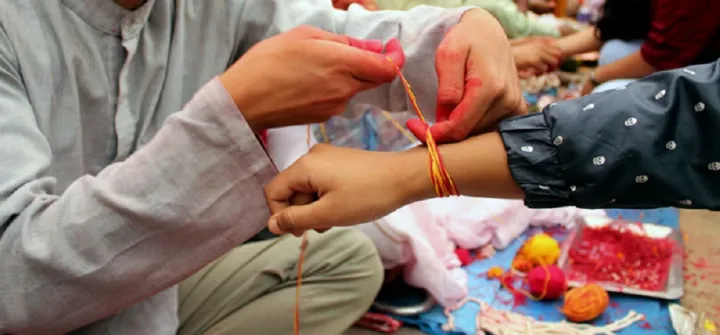
Hindus across the country and beyond are marking Janai Purnima (Raksha Bandhan) and Gai Jatra simultaneously on Friday.
Janai Purnima is marked by offering prayers to Lord Shiva, changing Janai (sacred thread) and eating Kwanti, a soup prepared from nine different beans, and Gaijatra is marked by commemorating the relatives who died in the past one year. On the occasion, which is also a full-moon day, pious Hindus take bath in holy rivers and ponds and change their janai.
Meanwhile, a special ceremony was organised at the Pashupatinath Temple to change the Janai of Lord Pashupatinath on Thursday. Every year, sacred thread changing ceremony is organised the day before the Janai Purnima. As per the ritual, people can change their sacred thread on the day of Janani Purnima after changing the sacred thread of Lord Pashupatinath.
The people get yellow-red threads tied around their wrists from the Brahmins as a protective gear for the whole year. The tagadharis, or those wearing the Janai, change the sacred thread.
The festival, also called Rishi Tarpani, is popularly known as Gunhu Punhi in the Newar community.
Kwanti is a special delicacy added to the Nepali menu on the occasion of Janai Purnima. The soup is highly nutritious and is believed to help keep diseases at bay. In the Newar community, there is a tradition of offering the soup to frogs.
On this day, sisters offer Rakshya Bandhan, fastening the sacred thread around the right wrist of their brothers as an amulet and eat Kwanti.
People of Kathmandu Valley visit the five-storey Kumbheswor Temple in Patan and pay their respect to the Kumbeswor, Lord Shiva. In addition, they bathe in the pond which is believed to flow from Gosaikunda, the holy lake dedicated to Lord Shiva.
The Newar community of the valley and across the nation celebrate the festival of Gaijatra commemorating those who died in the past one year.
During the festival, cows are also marched on the streets. Every Newari community celebrates the festival especially in Bhaktapur, Patan, Basantapur, Kirtipur and Tokha.
The occasion is filled with songs and jokes. Mockery and humor of every kind become the order of the day until late evening. Meanwhile, markets in Saptari were crowded on Thursday to buy Rakhi.





